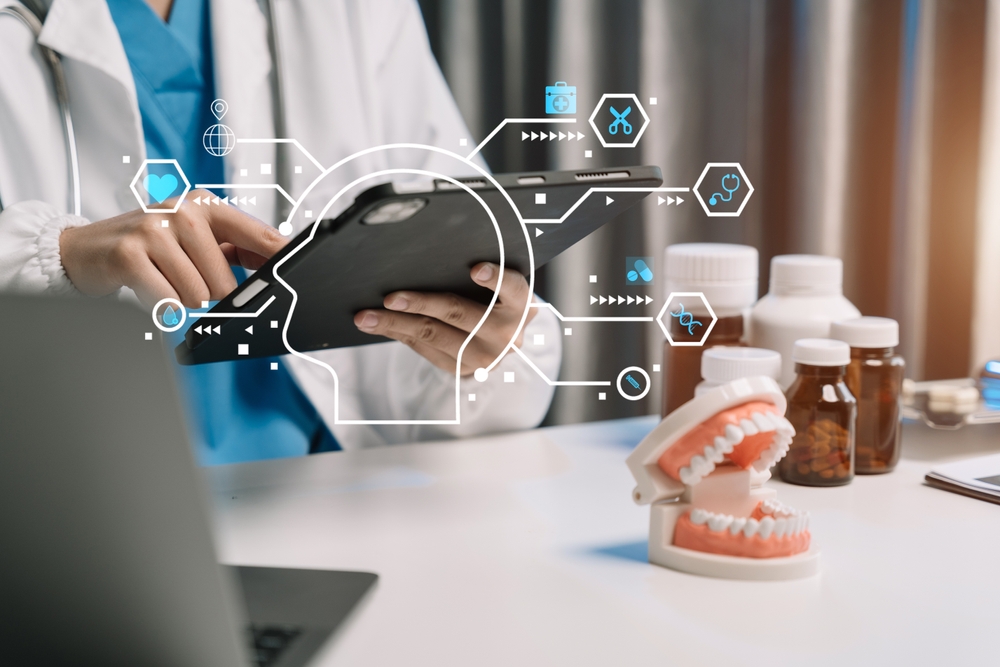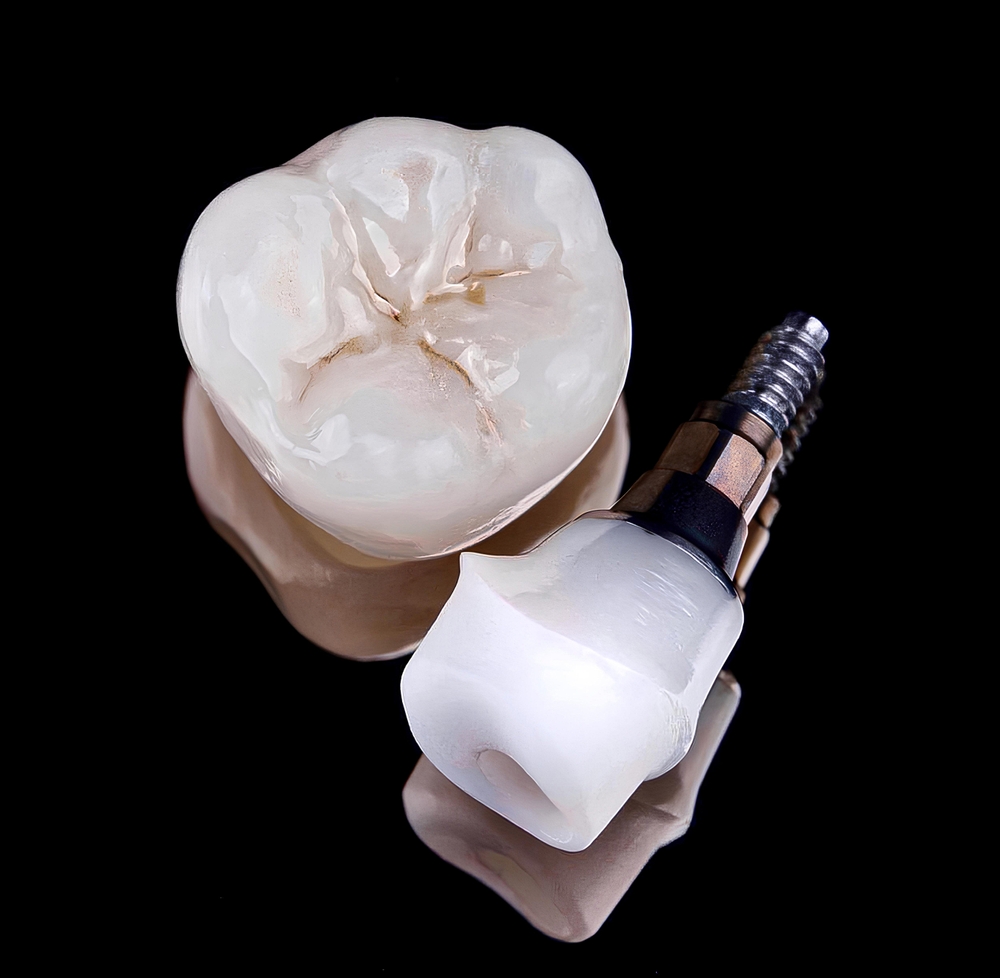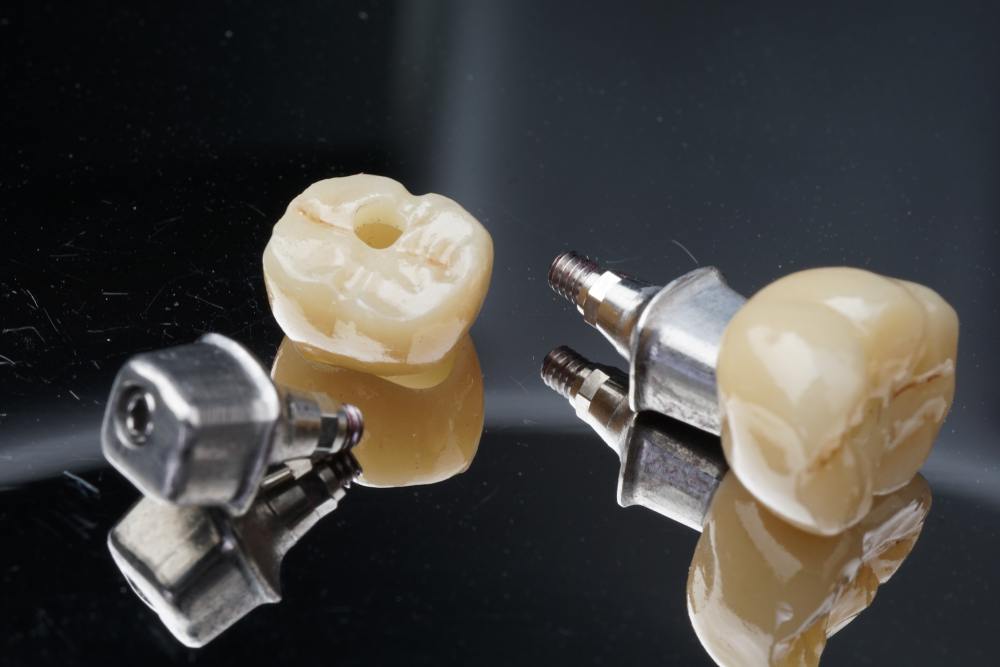Guided implant surgery has emerged as a revolutionary technique that enhances precision, predictability, and patient outcomes. Behind the scenes of this innovative approach lies an often underappreciated but vital player – dental labs. These labs play a pivotal role in the success of guided implant surgery, contributing their expertise in digital technology, material science, and craftsmanship to ensure seamless treatment procedures and optimal patient results.
The Evolution of Guided Implant Surgery:
Traditional implant surgeries have come a long way, but guided implant surgery has taken precision to an entirely new level. This technique involves the use of three-dimensional imaging, computer-aided design (CAD), and computer-aided manufacturing (CAM) technologies to plan and execute implant procedures with unprecedented accuracy. It allows dentists to visualize the patient’s oral anatomy in intricate detail, leading to safer and more efficient surgeries.
The Role of Dental Labs:
Dental labs are an essential cog in the guided implant surgery process, contributing their expertise in multiple ways:
Digital Impressions and 3D Models:
Dental labs start by creating digital impressions based on scans of the patient’s oral cavity. These digital impressions serve as the foundation for creating accurate 3D models of the patient’s teeth, gums, and bone structure. These models are essential for planning implant placement and creating surgical guides.
Surgical Guide Fabrication:

Surgical guides are one of the cornerstones of guided implant surgery. These guides, often 3D-printed, are customized tools that map out the exact location, angle, and depth of each implant. Dental labs collaborate closely with dentists to design and fabricate these guides, ensuring they fit the patient’s unique anatomy perfectly.
Material Selection and Compatibility:
Dental labs are well-versed in the properties of various dental materials. When it comes to guided implant surgery, they play a vital role in selecting materials that are biocompatible, strong, and durable. This is crucial as the materials used directly interface with the patient’s body for extended periods.
Prosthetic Design and Fabrication:
While the focus of guided implant surgery is on the implant itself, the end goal is to restore the patient’s dental function and aesthetics. Dental labs assist in designing and fabricating prosthetics, such as crowns, bridges, and dentures, that will be affixed to the implants. The accuracy of these prosthetics is directly tied to the precision of the implant placement.
Quality Control and Adaptation:
Dental labs maintain strict quality control standards to ensure that all components, from surgical guides to prosthetics, meet the required specifications. If any adjustments are necessary during the process, labs can quickly adapt and modify designs based on real-time data.
What to Look for In a Dental Lab:
When dentists are planning for guided dental implant surgery, choosing the right dental lab is a crucial step that can significantly impact the success of the procedure and the quality of patient outcomes. Here are some key factors that dentists should look for when selecting a dental lab for guided implant surgery:
Expertise in Digital Technology:
The dental lab should be proficient in using advanced digital technology, including 3D scanning, computer-aided design (CAD), and computer-aided manufacturing (CAM). These technologies are essential for creating accurate digital impressions, 3D models, and surgical guides.
Experience in Guided Implant Surgery:
Look for a dental lab with a proven track record in guided implant surgery. Experience matters, as the lab’s familiarity with the intricacies of the procedure can contribute to accurate planning and better outcomes.
Collaboration and Communication:
Effective communication between the dentist and the dental lab is crucial. The lab should be open to collaborating closely with the dentist to understand the treatment plan, patient’s needs, and desired outcomes. This collaboration ensures that the surgical guides and prosthetics are customized to fit the patient’s unique anatomy.
Customization and Precision:
A reputable dental lab should prioritize customization and precision. Every patient’s oral anatomy is unique, and the lab should have the capability to tailor surgical guides and prosthetics to match the specific requirements of each case.
Quality Control Standards:
The lab should adhere to rigorous quality control standards to ensure the accuracy of the surgical guides and prosthetics. Quality control processes help minimize errors and discrepancies that could lead to complications during surgery or suboptimal results.
Material Expertise:
The choice of materials for surgical guides and prosthetics is essential for biocompatibility and long-term success. The dental lab should have a deep understanding of dental materials and be able to recommend suitable options based on the patient’s needs and preferences.
Turnaround Time:
Efficiency is important in any dental procedure. The dental lab should have a reasonable turnaround time for fabricating surgical guides and prosthetics without compromising on quality. Prompt delivery of these components can streamline the treatment process for the dentist and patient.
Technological Infrastructure:
Check if the dental lab has up-to-date technology and equipment for producing accurate 3D-printed surgical guides and prosthetics. The lab’s technology infrastructure directly affects the precision of the final products.
Post-Processing Support:
After the surgery, there might be a need for adjustments or modifications to the prosthetics. A reliable dental lab should offer post-processing support to ensure that any necessary changes can be made promptly and effectively.
Reputation and Reviews:
Research the dental lab’s reputation within the dental community. Reading reviews and testimonials from other dentists who have worked with the lab can provide insights into the quality of their services and their commitment to customer satisfaction.
In Conclusion:
Guided implant surgery represents a groundbreaking advancement in modern dentistry, and dental labs are unsung heroes in making this technique a reality. Their expertise in digital technology, material science, and precision craftsmanship is integral to the success of guided implant surgeries. As technology continues to evolve, the collaboration between dental professionals and labs will only grow stronger, leading to even better patient outcomes and revolutionizing the field of implant dentistry.




